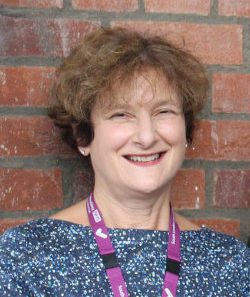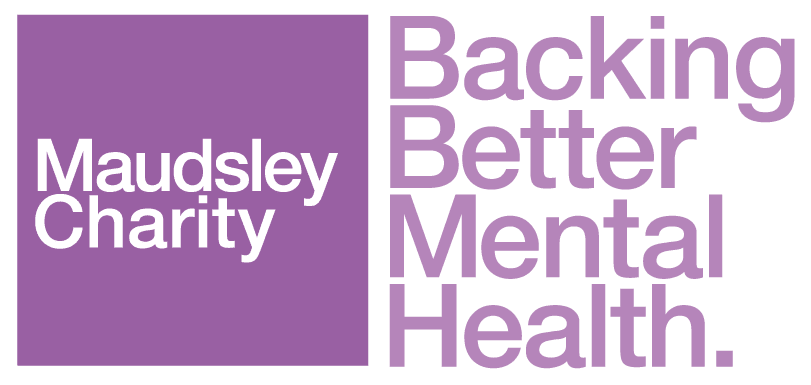University Mental Health Day – Q&A with Dr. Irene Sclare
This University Mental Health Day, we learn more about how DISCOVER, a Maudsley Charity funded programme, is helping 16-18 years olds navigate the challenges of secondary school and the transition to university.

Dr. Irene Sclare
Consultant Clinical Psychologist
Dr. Sclare developed and leads the award-winning DISCOVER programme which delivers schools-based workshops for 16-18-year-olds who experience anxiety, low mood and stress. The programme is currently run in 30 schools across London in partnership with teachers.
What was the impetus for the creation of DISCOVER?
DISCOVER was conceived in relation to several sets of needs – to address the known increased mental health risks for older teenagers, the known long-term impacts of anxiety and depression on young people’s lives and futures, and the lack of suitable evidence-based interventions that are accessible to young people experiencing emotional difficulties.
The majority of mental health conditions develop in the early to mid-teens. 16- to 18-year-olds who experience mental health difficulties are less likely to get early intervention and psychological therapy when their problems emerge. At that point, there may be no mainstream service available until the problems are entrenched. So, in setting up DISCOVER, we hoped to provide responsive psychological support to older teenagers in a format that addresses a broader range of needs, other than just the very high needs.
And the other thing we know is that there are many barriers in place, preventing young people from accessing services, including many health and social inequalities. 16-18 years olds have very busy lives, so it’s hard finding a way to get to services when you’ve got multiple academic and social pressures and may not know where to get good quality support.
And it is important to recognise that adolescent mental health services, where I worked for many years, provide clinic-based services typically for 12–18-year-olds, and require a referral system to be in place. DISCOVER offers an intervention that’s acceptable and relevant to the needs of that older age group who are on the brink of moving forward into university or jobs or other kinds of post-school experience. They and their families have different sets of developmental and psychological life tasks than 12–13-year-olds.
The majority of young people who attend DISCOVER workshops have never accessed psychological support of any kind, despite their needs. Most participants are from non-white backgrounds, and many would be likely to be underrepresented in mainstream mental health services, partly to do with perceptions of mental health stigma, or other barriers within family or community. It’s important to me and my DISCOVER team that we attempt to address existing inequalities of access in terms of race and culture.
What are some of the risks that students of that age have making the transition into university?
A: For young people, I think university can be a challenging time and may be overshadowed by expectation – the expectation of having the best time ever, the expectation of doing well or becoming who your family want you to become, or your school wanted you to become, or the expectation that in some way that you will change into the person you want to be.
Anxiety and depression are very prevalent in this age group and are the most common mental health conditions, and the pandemic has wound that level up. Young people with neuroatypical conditions like autism are also very greatly at risk of anxiety and depression. All of those groups are going to be prone to self-harming in relation to the complexities that are going on in their lives. Suicidality is very, very common amongst young people who are very anxious or depressed. So we’re very used to exploring all of those areas with young people, and helping them find ways forward, as well as addressing other problems like eating disorders and PTSD or OCD.
Going into university some will be carrying those difficulties into a situation where they don’t have parents around to support them. Luckily there are good support services at university which will be so useful for students who experience anxiety or low mood, and who may face difficulties affecting their academic studies and/or their social lives.
I would say there’s another group for whom university is a chance to move away from difficulties at home where the young person might say to themselves, I’ll tolerate this until I can get away. So I think there can also be some opportunities perhaps to explore who they want to be away from their families and to flourish.
Q: How does DISCOVER help with that transition to university?
We hope that the young people who have attended DISCOVER workshops continue to use the strategies we taught them to find ways to handle their difficulties and adapt to university life. The program offers something on cognition, about how we think and how we perceive, skills to manage less helpful patterns of thinking and trying to challenge negative thoughts that might affect levels of anxiety or other personal difficulties.
We also give them an array of techniques to manage things that we might call behavioural – how to manage your time, how to organize yourself, how to reduce a habit of avoidance of difficulties and face your fears, how to manage the judgments you might be making of yourself to try to have a more balanced view. We focus on how to get into good work patterns, and how to have a good work-life balance and socialize. And in all of that, how to use a goal-oriented approach. What do I want to achieve? What are my realistic goals?
And the third area and classic CBT would be how to manage the body sensations we get when we’re very anxious, how to calm ourselves when we’re worried, or in an unfamiliar situation where it may be exciting or maybe terrifying,
A big element we focus on in the DISCOVER workshop is sleep and the importance of establishing good sleep routines. Sleep is such a vital area for students to manage – getting enough sleep or not sleeping too much, where there’s no one there to nudge you awake or notice if you’re up all night working or restless or agitated or just oversleeping, because you’re feeling you can’t fit in.
How has the pandemic impacted the transition to university?
One of the very obvious impacts of the pandemic is on sixth formers’ expectations and hopes for their future at university and beyond. Students have lost a lot of schooling at a critical time and there is now a high level of stress within the school to do with catching up. Last year and the year before, there were no public exams. This is the first year of GCSEs and A level exams since 2019 and some students have slipped into different study habits, perhaps where they’re overworking and not taking breaks, or where they are not able to sustain their concentration or motivation.
Sixth form is a very pressurized place and there’s a complex socio-economic world out there. University may seem to offer less than in the past. Some are beginning to question ‘What’s the point of being at university? It’s going to cost a lot. If it’s all online, where’s the fun in that?’ And you know, for people who want to make new friends because they’re ready for that, or are wary of socialising with peers because of COVID or because they’ve had difficulties in sixth form, where are the opportunities?
It’s sad to meet sixth formers who’ve just lost their motivation for further studies, and who have been adversely affected by the loss of school routines, and can’t catch up with the curriculum, or students who have not been able to make friends at sixth form because of the reduced social contact and online learning, and who are feeling isolated.
What are the positive impacts DISCOVER has had on the young people you work with?
We’ve got strong evidence from our outcome data to show that there is a very significant change in young people’s anxiety, depression, and emotional wellbeing, and a general boosting of self-esteem. Students learn how to create good work-life balance, get good sleep and calm themselves if they are anxious or panicky. Participants describe a sense of being empowered to tackle difficulties that they can manage in situations where there may be so many things beyond their control. And we also see changes in their ability to work towards a goal, to achieve a goal, to feel that a goal was useful for them and also to maybe fit in more.
Many young people look great on the outside but actually, inside they’re in a very, very different place. Although we haven’t fully researched this, we see an openness to having psychological help in the future and a willingness to go forward and be helped by a teacher. So, if at university they have had some experience of something like DISCOVER, they might feel that someone could get what they’re going through, particularly people whose family backgrounds wouldn’t have had the experience of accessing this kind of help.
